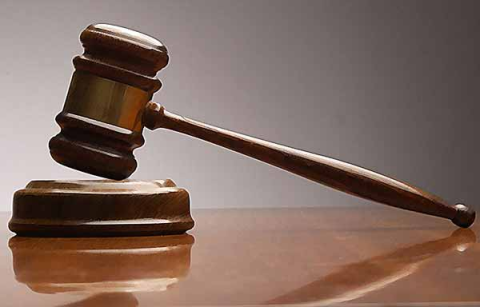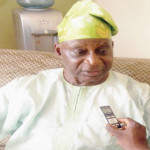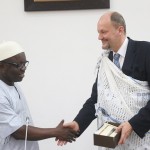SERAP Calls for Sanctions Against Corrupt Lawyers, Judges
Featured, Latest Headlines, News Sunday, February 14th, 2016
BALTIMORE, MD (AFRICAN EXAMINER) – Following growing allegations of corruption against some senior lawyers and their alleged complicity or facilitation of judicial corruption, Socio-Economic Rights and Accountability Project (SERAP) has called “for tougher sanctions against those found to be involved if large scale political corruption is to be meaningfully combated and corruption-free judiciary is to become a reality.”
In a statement dated 14 February 2016 and signed by SERAP executive director Adetokunbo Mumuni, the organisation said, “It’s not only professional misconduct but also a crime for a lawyer to knowingly assist or induce another to break, violate or attempt to violate the rules of professional conduct or commit a corrupt act and other action prejudicial to the administration of justice that reflects adversely on the lawyer’s honesty, trustworthiness or fitness as a lawyer in other respects.”
The statement reads in part: “Lawyers are officers in the temple of justice but improperly influencing a public official to achieve results by means that violate lawyers’ rules of professional conduct or knowingly assisting a judge or judicial officer in conduct that violates applicable rules of judicial conduct or other laws is a clear negation of this sacred duty.”
“Yet, corrupt lawyers and judges often get away with their misconduct and crime. This impunity has contributed to the sporadic and lax prosecution and punishment of officials responsible for large-scale corruption, while, conversely, imposing severe sanctions for petty corruption and criminals, so as to give the impression of justice. This situation violates the underlying legal and moral assumptions that all persons will be treated equally, fairly, and with respect.”
“Any lawyer who acts in such a way as to be directly responsible for the act of corruption or acts as part of a conspiracy to corrupt should face liability as a “principal” offender.” Even where a lawyer is not directly responsible for the act of corruption but facilitates or otherwise provides assistance to a principal offender, he/she should be liable as an accessory or accomplice. This accountability mechanism for lawyers and judges must follow due process of law.”
“The obligation on lawyers not to engage in illegal activities is vital in upholding professional standards and obviously extends to the activities of bribery and corruption, as lawyers must not themselves breach, or facilitate a breach, of the law.”
“For the sake of the legal profession, the cause of justice and effective remedies for victims of large scale corruption such as the arms procurement scandal, appropriate authorities particularly the Nigerian Bar Association (NBA) have to speak out strongly against corruption in the legal profession.”
“The NBA has to provide strong leadership including by strongly and publicly speaking out against corruption in the legal profession and the judiciary, promoting tougher sanctions against corrupt lawyers even if those involved are senior members of the bar including SANs, and judges and creating, developing and actively promoting anticorruption initiatives for the legal profession if it is to remain credible, relevant and add value to the ongoing fight against large scale corruption in the country.”
“The NBA in fact has an abiding responsibility to consistently and proactively promote and ensure lawyers’ compliance with anti-corruption and ethics rules, and to encourage lawyers to carry out their professional duties diligently and conscientiously and refrain from doing anything which would expose the legal profession to ridicule.”
It would be recalled that the Chief Justice of Nigeria (CJN), Justice Mahmud Mohammed recently accused lawyers of aiding and abetting corruption on the bench. In a statement issued by the media aide to the CJN, Mr. Ahuraka Yusuf Isah, Justice Mohammed said lawyers, both old and young, who decried the rots on the bench were usually the first to rush to court to seek a court order to stop the National Judicial Council (NJC) from investigating judges alleged to have acted wrongly.”
“I urge the bar to put the interest of the system far and above the individuals. Imagine this scenario; you in the bar decry the “rots” on the bench, calling for disciplining and cleansing of the judiciary by weeding out the bad eggs from the bench. Yet, you are the first to jump to the court to seek restraining order on the NJC to stop it from the investigation and trial of a judge based on a petition brought against the judge before the council. How then is the principle of fair hearing sustained?”
Related Posts
Short URL: https://www.africanexaminer.com/?p=30207






















